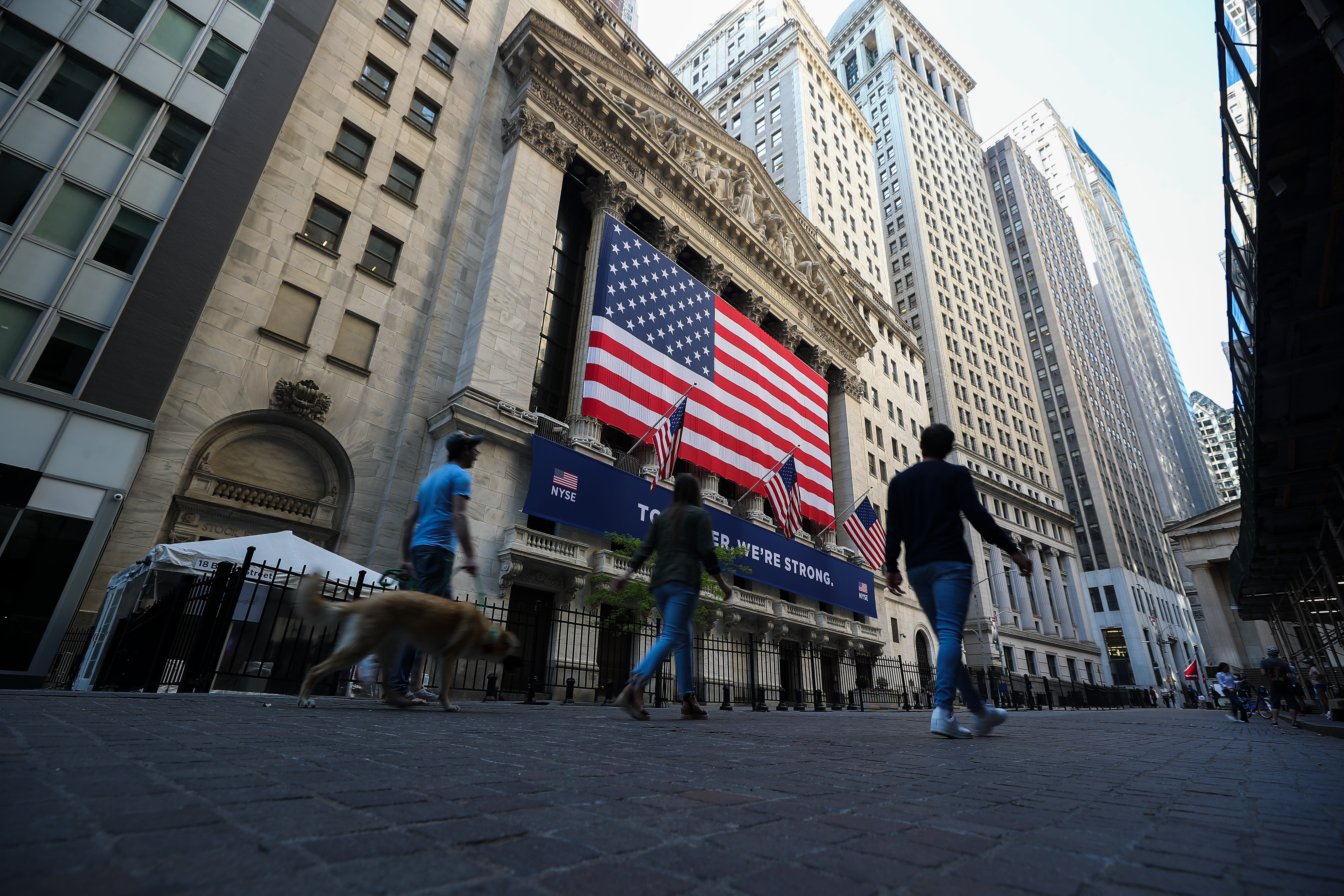
People are walking by the New York Stock Exchange (NYSE) building during Covid-19 pandemic in New York on May 26, 2020.
Tayfun Coskun | Anadolu Agency | Getty Images
Futures contracts tied to the major U.S. stock indexes slipped at the start of the overnight session Tuesday evening as Wall Street looked to take a breather from healthy gains clinched earlier in the week.
Dow Jones Industrial Average futures shed 35 points, suggesting an open loss of 39 points when regular trading resumes on Wednesday. S&P 500 futures pointed to an opening decline of 0.15% while Nasdaq-100 futures indicated an opening trade around flatline.
The overnight moves Tuesday evening followed a largely positive day on Wall Street during the regular session.
The Dow Jones Industrial Average closed 131.14 points higher on Tuesday as Apple, UnitedHealth and Visa led the blue-chip index higher. The S&P 500 gained 0.4% to end the day at 3,131.29.
The Nasdaq Composite, meanwhile, advanced 0.74% to 10,131.37, its 21st closing record for 2020. The Nasdaq’s gain on Tuesday also represented its eighth straight day of gains, its longest winning streak since December, when it advanced for 11 straight sessions.
Shares of consumer technology company Apple rose 2.1% on Tuesday to reach a new all-time high, notching the benchmark one day after it unveiled new operating systems for its iPhone and computers. Apple pleased its investors further by announcing it will phase one Intel chips in favor of its own products when building new Mac devices.
Investors also kept a close eye on comments from White House health advisor Dr. Anthony Fauci, who on Tuesday said the U.S. is seeing a “disturbing” surge in new Covid-19 cases. Fauci, the director of the National Institute of Allergy and Infectious Diseases, also struck a more upbeat tone on a vaccine potential and said he expects one by early 2021.
Tuesday’s gains during regular trading followed a more turbulent overnight session after conflicting signals from the Trump administration on its landmark trade deal with China. Trump trade advisor Peter Navarro triggered confusion Monday evening after saying in an interview that the deal was “over.”
President Donald Trump then tweeted that the accord was “fully intact” and said he hoped Beijing would live up to its agreements in the deal.
The about-face from the White House highlighted the fragility of the accord struck between the globe’s two largest economies earlier this year. Tensions have been rising between the U.S. and China in recent months over the origins of the coronavirus pandemic and Beijing’s influence over Hong Kong.
Subscribe to CNBC PRO for exclusive insights and analysis, and live business day programming from around the world.
Leave a Reply